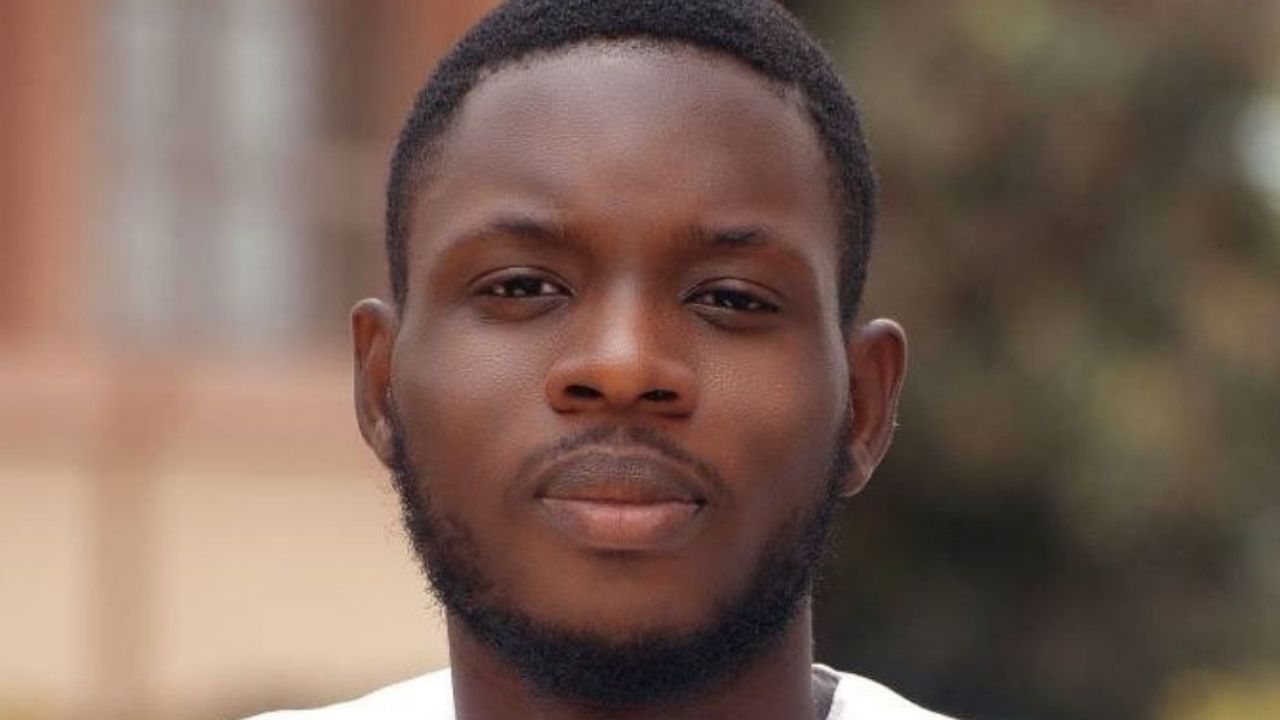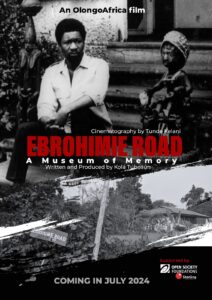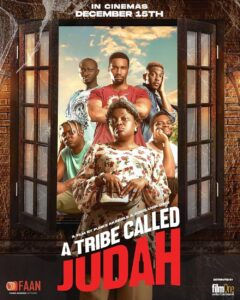When Rita Dominic first hits the stage as the titular character in La Femme Anjola, to cover Simi’s “O Wa N’be,” the screen lights up with her commanding presence. As the onscreen audience cheers, captivated by her aura, the offscreen viewer is just as charmed. She radiates elegance and grace that catches the wandering eye of Nonso Bassey’s Dejare, setting the stage for a thrilling turn of events: infidelity, gang violence, elaborate financial schemes, car explosions, and police intervention. And murder, of course.
After years of being stuck in its own development hell, director Mildred Okwo’s film is worth the wait. An ambitious exploration of the almost-forgotten film noir genre, it situates a specifically Nigerian story within the context of a Hollywood-driven cinematic tradition. The film sees her reunite with her The Meeting collaborators: Dominic and screenwriter Tunde Babalola, whose screenplay here is thrilling and suspense-filled, nodding at such early genre classics as Alfred Hitchcock’s Notorious (1946) and David Miller’s Sudden Fear (1954).
We first meet Dejare as a young Lagos Big Boy whose life is on the right track: he has a successful career as a stockbroker and is engaged to the love of his life. But he craves adventure, something different from his routine life. When he hears of an opening for a saxophonist at a bar called The Basement, he auditions for the side gig and gets into the band. He is excited, but his world is about to be turned upside down.
He is the object of flirtatious comments by the ever-jolly bartender Adanna, played by Adejumoke Aderounmu, which he ignores. But he cannot ignore Anjola, his bandleader. Their sexual tension is apparent, even as she initially objects to his musical style.
The married Anjola makes sexual advances towards him, which he tries to rebuff. But his longing for her is betrayed when he starts to channel that energy into his sex life with his fiancée, who grows suspicious of his new aggressive sensuality. He assures her there is nothing amiss; he has a lot to lose if he starts an affair. But he does just that, succumbing to Anjola’s charm.
The danger of such carelessness is emphasized when Anjola’s husband Odera Kalu (a shrilling performance by Chris Iheuwa), a gang leader, throws someone through a window in a fit of anger. Dejare is reminded that he is sleeping with the wife of a dangerous man. But he continues. Even after his fiancée finds out and leaves him, he remains attached to Anjola’s vulnerability. She tells him that her husband keeps her in an oppressive marriage because of his wealth and influence. She wants to break free. Her plan? By killing her husband.
What ensues is a wild series of events involving a standoff at gun point in Cape Town and an impressively animated car crash in Lagos.
At the heart of the drama is the powerful chemistry between the two leads: Dominic’s dame-in-distress act as Anjola pairs perfectly with Bassey’s interpretation of Dejare as her knight in shining armor. Bassey, in his big screen debut, is saddled with the task of going toe-to-toe with arguably the best actor in Nollywood. He does that with great success: he gives Dejare a boyish charm, cool, and charisma that make him magnetic. It is one of the best male performances in recent memory.
Dominic’s varied skill here could not be further from her career-changing turn in The Meeting almost 10 years ago. She ditches the aging makeup and comedic accent for a rare mix of vulnerability and strength. In one scene, she screams into the rain as she bashes a man’s head in: I’m free! I’m free! It leaves the viewer both relieved for her and terrified by her. In that singular scene, she is at once victim, victor, and villain—a persona that very few could ever hope to pull off.
La Femme Anjola’s big story accomplishment is its faithfulness to the classic elements of its genre—dim lighting, the femme fatale’s love of cigarettes, jazz bar aesthetic, scandalous love affair, murder, and double-crossing—while reinventing it as African, as reflected in the costume design, hairstyling (Adanna’s hair choices are such delights), and set designs by Kelechi Odu. Although it drags at the end with social commentary that almost betrays the film’s lack of confidence in its own narrative power, La Femme Anjola is an elegant cinematic success, one of the best films we have seen from Nollywood. ♦





